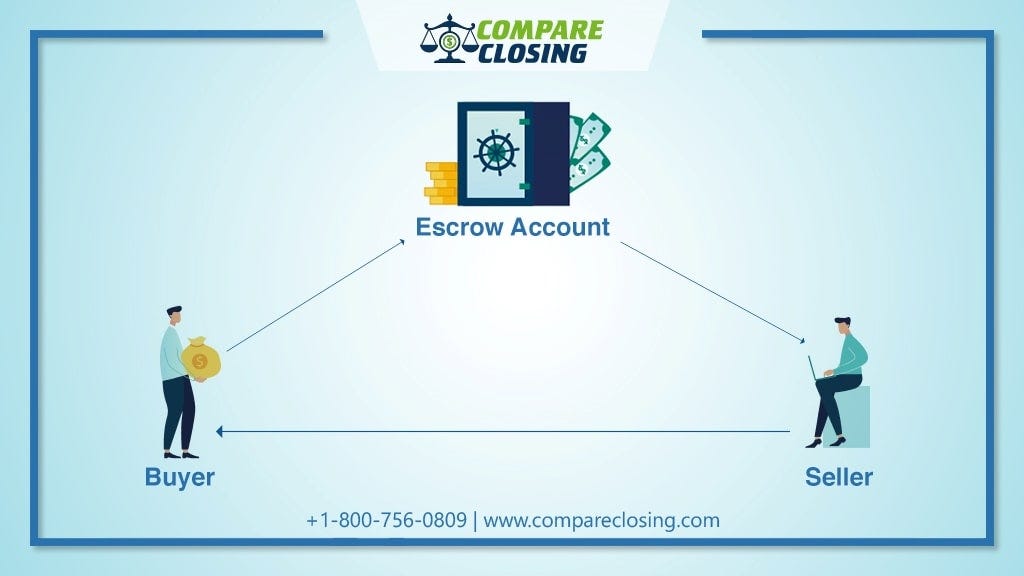
About Escrow Fee
There are a lot of costs included in a real estate purchase transaction. Different departments work diligently to make sure that your transaction is completed on time.
All these departments have fees that would be usually charged to the buyer at the end of closing.
One of such fees is called the escrow fee. In this post, we will understand what is escrow fees in detail.
Before we jump into escrow fees let’s first understand escrow and escrow accounts.
What Is An Escrow?
An escrow is a neutral third party who makes sure that all the terms that are in the agreed-upon contract are fulfilled before the transaction is complete. The escrow companies work for both seller and the buyer.
Once the sales contract is signed between the buyer and the seller, the escrow officer is responsible to take the earnest money deposit from the buyer and hold it in an escrow account.
Along with that, the escrow officer will ensure that all the conditions in the contract are met so that the transaction could be closed smoothly.
What Is An Escrow Account?
The escrow account is a temporary account created by the escrow company once the sales contract is signed between the seller and the buyer.
This account is used to hold funds that would be disbursed upon completion of the real estate transaction.
These funds will be disbursed only after all the conditions that are set up in the contract are settled.
After the initial sales contract is signed between the buyer and the seller, the buyer will give an earnest money deposit check to the escrow company which will be held in this escrow account.
The earnest money deposit check given by the buyer acts as a commitment to purchase the property.
Some common conditions in the contract are the buyer acquiring a mortgage and passing the property inspection.
A mortgage escrow account is when a borrower chooses to pay his homeowner’s insurance and property taxes every month along with his mortgage payments.
These payments are saved in an escrow account maintained by the lender. The borrower will pay the taxes and insurance amount monthly to the lender, and the lender will pay the taxes and insurance when they are due from the escrow account.
What Are Escrow Fees?
An escrow fee is a fee paid to the escrow company for providing escrow services that are determined by the property purchase price.
The job of the escrow company is to hold and disburse money to different parties involved in a real estate transaction, co-ordinating will all the parties involved in the signing of the documents, maintaining the accuracy of paperwork, make sure all the parties adhere to the contract and take the liability of holding funds in their position till the transaction is complete.
How Much Are The Escrow Fees And Who Pays For Them?
The escrow fees could be anywhere between one to two percent of the property purchase price.
For example, if you are planning to buy a property worth $300,000, the escrow fees would be anywhere between $3000 to $6000.
There is also a base fee charged for the escrow services. All things considered, the actual escrow fee could vary depending on the escrow company as there are no regulations for these fees and every company may charge different fees for their escrow service.
The escrow fees are subject to negotiation between the buyer and the seller through their respective realtors.
One of the common ways to go forward with paying the fees is to split the fees between buyer and seller.
Depending on the outcome of the negotiation, the escrow fees could be either paid by the buyer or by the seller through seller concession.
Conclusion
Escrow fees are one of the substantial costs in a real estate purchase transaction. The buyer and seller should have a basic idea about the cost of the escrow services.
Your real estate agent would be the best person to help you choose the escrow company that works diligently and provides the best escrow services in the market.
https://www.compareclosing.com/blog/detailed-guide-about-escrow-fee/
Comments
Post a Comment